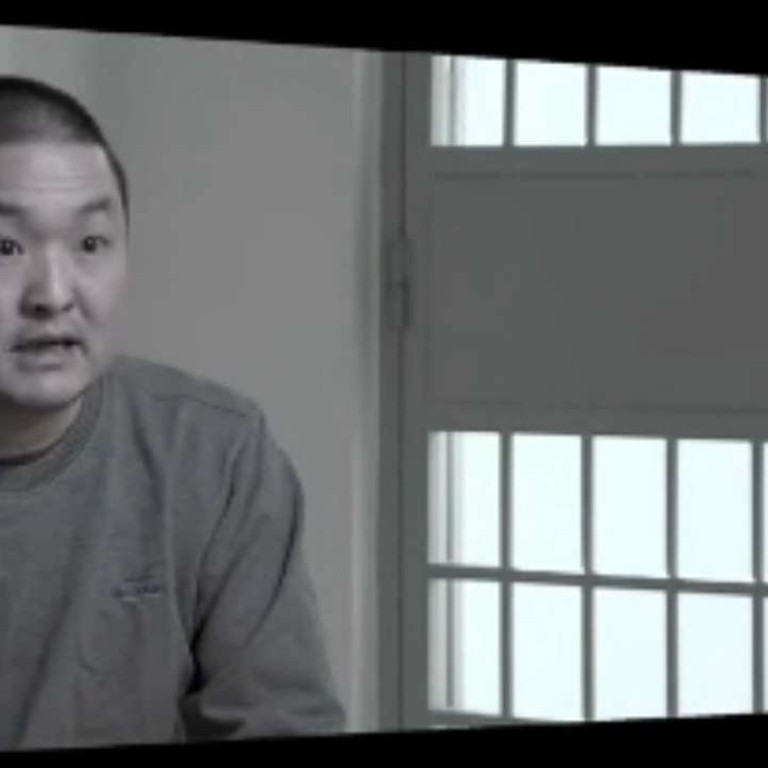
No money, no talk: TV series reveals how China’s corrupt graft-busters traded secrets for cash
Second part of documentary aired on CCTV, detailing how discipline officers were paid to leak confidential information, highlights need for regulation
In today’s world, information is money – and this rule applies not only to various industries and businesses, but also seems to hold true for the Communist Party’s graft-busters.
Through leaking confidential information of graft watchdog’s investigations or public tip-offs to corrupt officials, some low-ranking discipline officers were able to make a fortune for themselves and their families, the latest episode of a prime-time documentary series by the party’s top graft watchdog has revealed.
The episode, the second in the three-part series To Forge Iron, The Metal Itself Must be Strong, which has aired on state broadcaster CCTV each night since Tuesday, offered a rare and detailed look into how disciplinary officers abused their access to secret information. It highlighted an urgent need for checks and balances on the party’s increasingly powerful discipline inspection sector.
Yuan Weihua, a low-level cadre at the watchdog, the Central Commission for Discipline Inspection, secured one billion yuan (HK$1.12 billion) worth of infrastructure projects for his father and considerable wealth for himself by informing corrupt officials of important clues on potential or ongoing investigations against them.
One of the officials Yuan “helped out” was former Tianjin mayor Huang Xingguo, who was expelled from the party on Wednesday and prosecuted for corruption.

When Yuan was looking into graft cases in Tianjin in 2014 and 2015, Huang became acquainted with him to gather the latest information on graft investigations into him and his associates. In return, Huang treated him to drinks, meals and expensive gifts such as designer watches, according to the documentary.
The information Yuan leaked to officials included what graft busters had found out about their misdeeds, audit reports and investigation reports. He even gave them advice and discussed with some officials how to best cope with the investigations.
Apart from the CCDI, local discipline officers were also sought out by guilty officials, who were anxious to learn about whether they were being investigated.

Liu Zhong, former deputy head of an office responsible for receiving petitions and tip-offs in the Tianjin graft watchdog, was found to have been telling the city’s former police chief, Wu Changshun, any public tip-offs made against him, the documentary revealed.
Wu, who worked under Huang, was indicted for corruption and abuse of power last June.
Liu compared his relationship with Wu to the experience of “taking a high-speed train”.
He said: “Once I got on, I couldn’t get off anymore, it was too fast.”
In return, Wu helped Liu to buy a flat at a well-below-market price and also arranged jobs for his family. Liu also asked Wu to approve projects for some business acquaintances and received millions yuan in bribes from the businessmen.
The documentary, which gives a detailed look at how the party is cleaning up its graft watchdog, is being aired at a time when the party is preparing for a change in the line-up of the leaders in President Xi Jinping’s second term.

Since Wang took the helm of the CCDI in late 2012, more than 100 senior officials and thousands of cadres have been brought down by a sweeping anti-corruption campaign that he spearheaded.
But many graft-busters have become a target for graft probes themselves. In the past four years, a total of 7,200 graft busters across the country have been disciplined, among them 38 were from the top graft watchdog CCDI.
Wang himself has said during a trip to Jiangsu province last month that “power without containment is dangerous” – the first time he has explicitly expressed in public the need for the CCDI’s power to have checks and balances.

